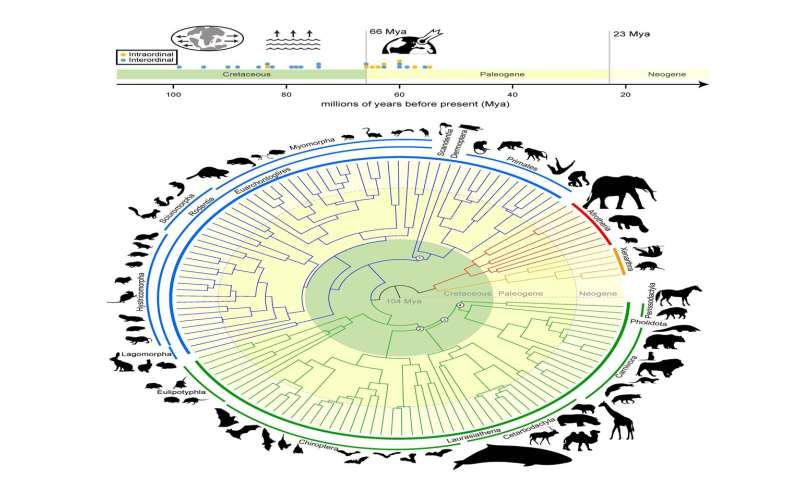Best of Last Week—New mammalian tree of life, an AI to generate food recipes and trialing retinitis pigmentosa therapy

It was a good week for the biological sciences, as a team of neuroscientists at Duke University discovered electrical activity within cells that could change the way scientists think about biological chemistry—they found that imbalanced electrical charges between air and microdroplets of water in nerve cells also exist around other types of cells. Also, an international team of geneticists used the genomes of 241 species to redefine the mammalian tree of life—the work provided a definitive view of the evolutionary timeline of mammals throughout the last 100 million years. And another international team studying a blinking fish found clues that shed light on how our ancestors evolved from water to land—the amphibious mudskipper was found to blink for the same reasons as humans.
In technology news, an international team of researchers reported that a new kind of zinc metal battery is cheap, efficient, durable, safe and environmentally friendly. And computer scientists at technology company PeopleTec built an AI application capable of generating complex recipes from images of available ingredients such as those showing the contents of a refrigerator. Also, a team of electrical engineers at MIT developed new materials that could yield stronger, faster-charging batteries. And a combined team from Beijing University of Posts and Telecommunications, Tsinghua University and the University of Maryland found another side-channel attack vulnerability in Intel CPUs.
In other news, an international team of neurologists has discovered that a single gene in the amygdala called miR483-5p can put the brakes on anxiety—they also found that anxiety could be reduced in mice by modifying the gene. While searching for evidence of ancient bears in an Alaskan cave, a team of paleontologists, geneticists and biologists made an important human discovery—genetic data showed some modern Alaskan Natives still live almost exactly as their ancestors did some 3,000 years ago. And finally, a gene therapy successfully trialed at Michigan State University in dogs with an inherited eye disease was found ready to be tested in clinical use in human patients—the disease, called retinitis pigmentosa, is one of many genetic diseases that cause vision loss due to the death of light-sensing cells in the retina.
© 2023 Science X Network